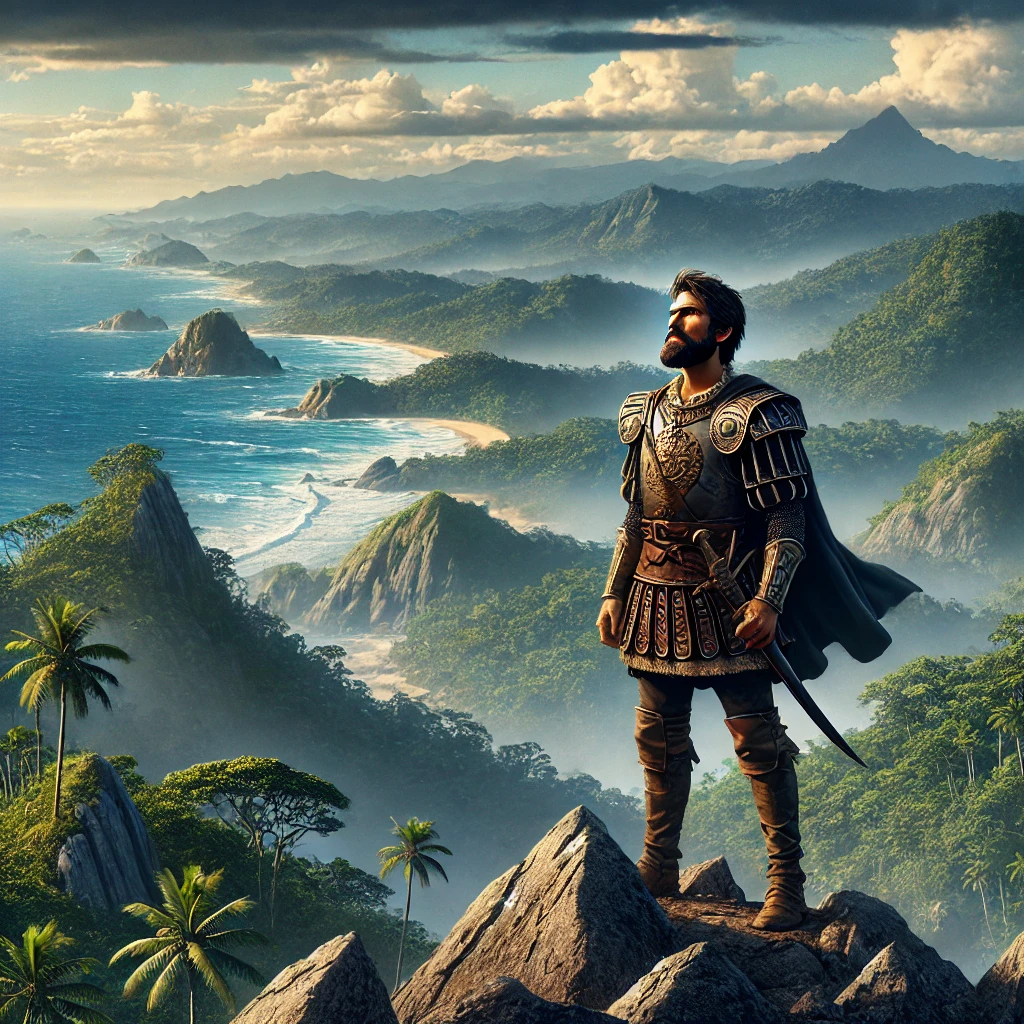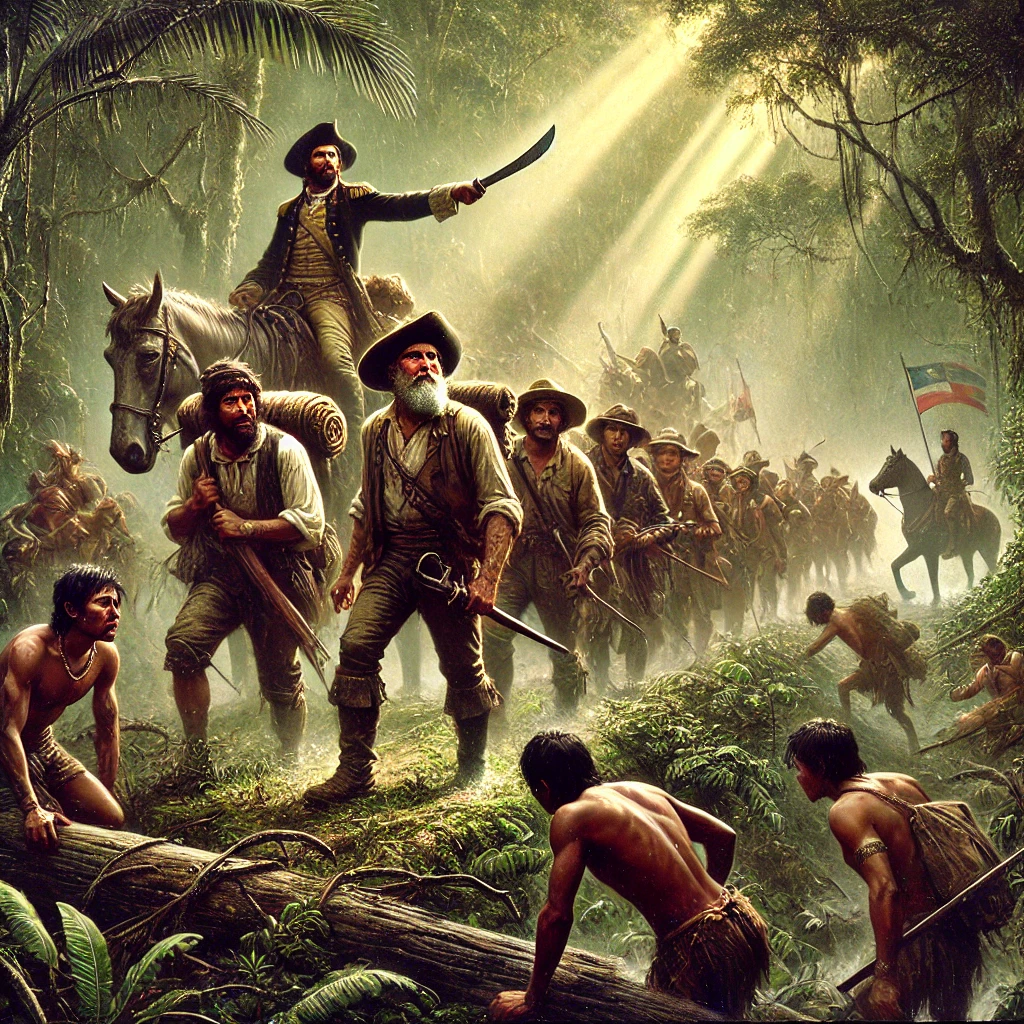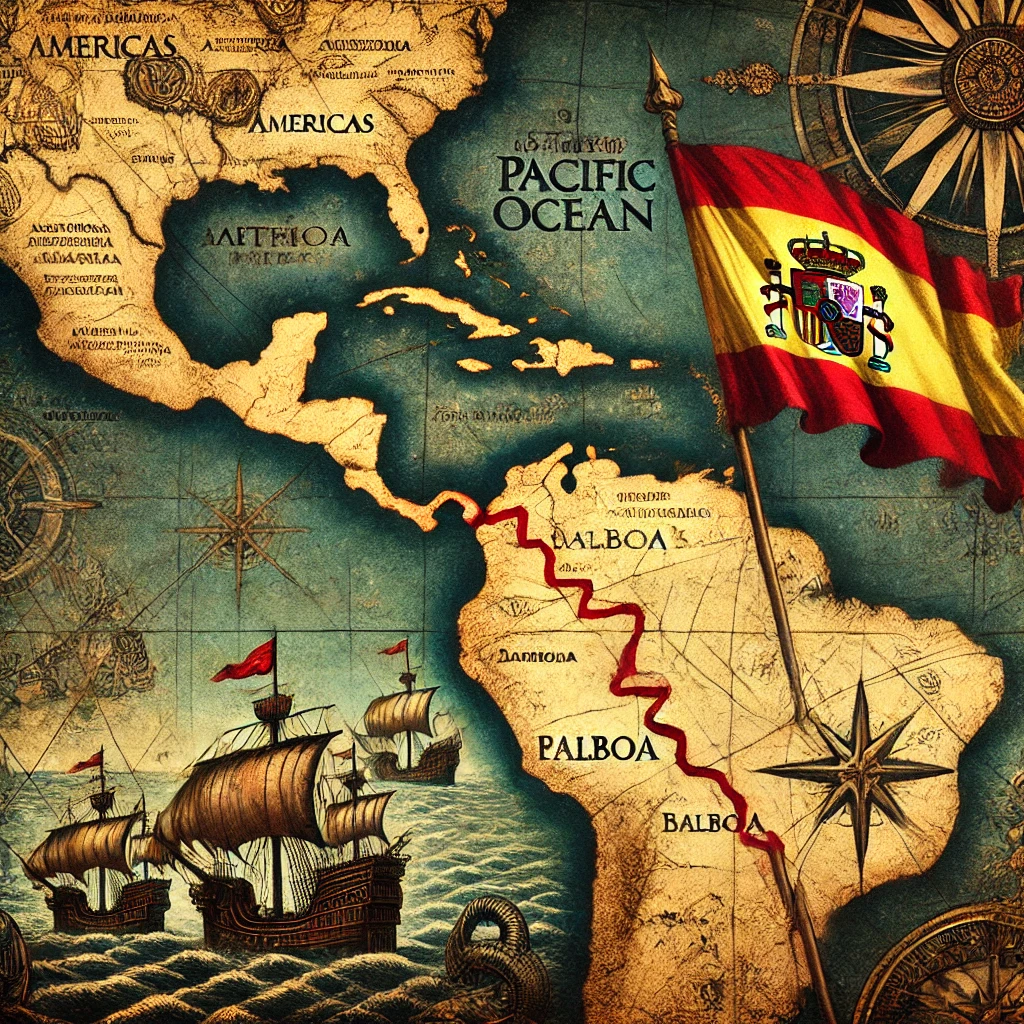A Conquistador’s Journey to the Unknown
On September 25, 1513, Spanish conquistador Vasco Núñez de Balboa stood atop a peak in the Darién region of present-day Panama and became the first European to lay eyes on the Pacific Ocean. This momentous event marked a turning point in the Age of Exploration, as it opened new possibilities for European expansion and trade across the world’s largest ocean. Balboa’s journey across the Isthmus of Panama was grueling, but the reward was immense—he had confirmed the existence of the vast body of water that lay beyond the Americas.

Balboa’s achievement was not only a personal triumph but a milestone in Spain’s efforts to explore and colonize the New World. His discovery fueled the ambitions of explorers and monarchs alike, eager to exploit new routes and territories. It also reinforced Spain’s position as a dominant maritime power at the dawn of the 16th century.
Crossing the Isthmus of Panama
Balboa’s journey began as part of a broader mission to establish a permanent Spanish settlement in the New World. In 1510, he helped found the colony of Santa María la Antigua del Darién on the Caribbean coast of present-day Colombia and Panama. While there, he heard rumors from Indigenous people about a “great sea” on the other side of the landmass. Driven by the hope of finding gold and establishing trade routes, Balboa led an expedition across the treacherous terrain of the isthmus in search of this fabled body of water.
After weeks of enduring dense jungles, mountainous terrain, and hostile encounters with native tribes, Balboa and his men finally reached the peak that overlooked what we now know as the Pacific Ocean. On that day, Balboa planted the Spanish flag and claimed the ocean and all the lands it touched for Spain, believing that it could offer a direct route to the riches of Asia.

A New Ocean for European Exploration
The discovery of the Pacific Ocean, which Balboa initially called the “South Sea,” had far-reaching implications for European exploration and expansion. Until Balboa’s sighting, Europeans had no direct knowledge of a vast ocean separating the Americas from Asia. His discovery not only confirmed that the Americas were a separate landmass but also hinted at the potential for new maritime routes that could lead to wealth and power. In the years following Balboa’s expedition, Spain and other European powers would set their sights on exploring and controlling the Pacific. Ferdinand Magellan’s famous circumnavigation of the globe in 1522, just nine years later, would further chart the Pacific’s vastness and solidify its importance in global trade. Balboa’s discovery paved the way for these future explorations and cemented the Pacific Ocean’s role in shaping the course of world history.
A Legacy of Conquest and Discovery
Vasco Núñez de Balboa’s discovery of the Pacific Ocean remains one of the defining moments in the history of exploration. Although Balboa himself would later face political intrigue and be executed in 1519, his achievement continued to inspire future generations of explorers and adventurers. The Pacific Ocean would become a central arena for European imperial ambitions, with Spain establishing vast colonies in Asia and the Americas.

While Balboa’s sighting opened up new opportunities for trade and conquest, it also led to increased European colonization and exploitation of indigenous populations. The consequences of these expeditions were felt for centuries, as native cultures were displaced, resources were extracted, and European influence spread across the globe.
The Pacific in Today’s World
Today, the Pacific Ocean remains a vital part of the global economy and geopolitics, much as it did after Balboa’s discovery in 1513. The ocean connects continents and facilitates trade and travel, playing a crucial role in international relations and commerce. From fishing industries to shipping lanes, the Pacific is integral to the lives of billions of people worldwide. Balboa’s sighting of the Pacific was a transformative event that altered the course of history. It expanded European knowledge of the world and set the stage for centuries of exploration, trade, and cultural exchange. The Pacific, with its vast resources and strategic importance, continues to influence the trajectory of world events, making Balboa’s discovery as significant today as it was over 500 years ago.
An Enduring Symbol of Exploration
Vasco Núñez de Balboa’s moment on the peak in Darién stands as a powerful symbol of exploration and the human desire to uncover new horizons. His discovery of the Pacific Ocean was a testament to the courage and perseverance of early explorers, who braved the unknown in search of knowledge, wealth, and adventure. It also serves as a reminder of the profound and often complex impact that these explorations had on world history. Balboa’s sighting of the Pacific Ocean remains one of the great moments of the Age of Exploration, a period that reshaped our understanding of the globe and laid the foundation for the interconnected world we live in today. His legacy endures as both a triumph of discovery and a reflection of the far-reaching consequences of European exploration.
